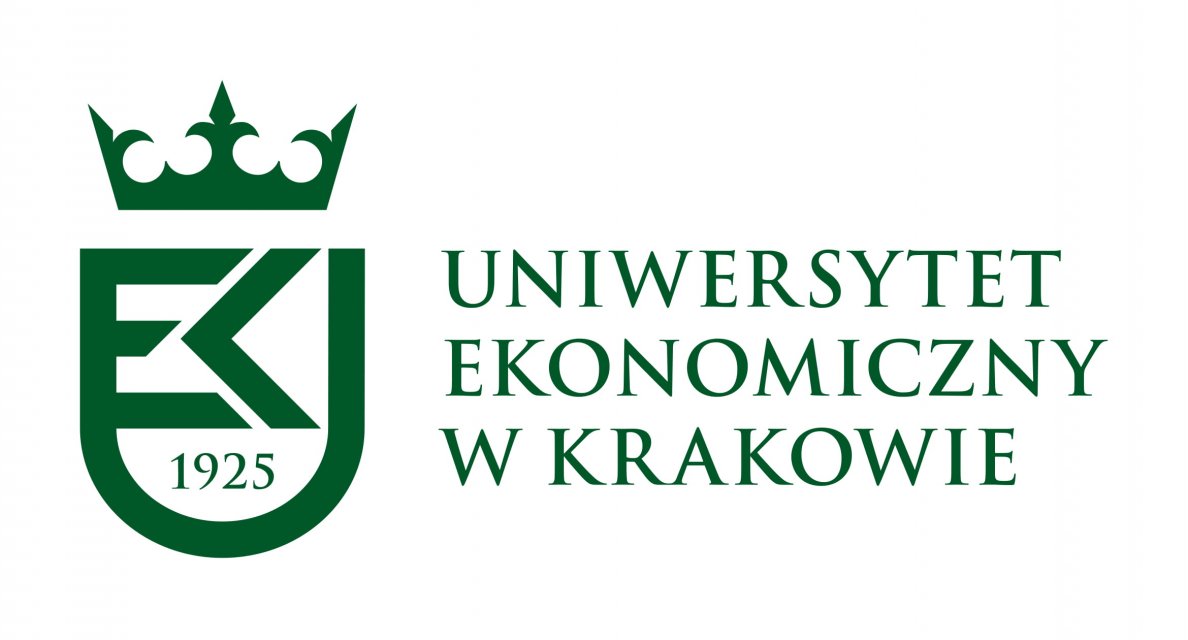
|
|
Learning Outcomes Objectives and goalsClick to read
Know what remote work (teleworking) is and how it could benefit your business as the means of anti-COVID-19 resilience Remote work regulations and practice of using them What is ’remote work’ (telework)?Click to read
’Remote work’ is the most popular Polish expression used for ’telework’ In other words, telework implies work achieved with the help of ICTs and conducted outside the employer’s locations. Generally speaking (not always the case in individual national legal orders) – it should happen via a voluntary agreement between the employer and the employee. There are several aspects of REMOTE WORK (TELEWORK) that need to be clarified in such a contract – such as the location of the work (e.g. at the employee’s residence or elsewhere), working hours (schedule), work to be carried out, communication tools to be used (and who is to provide them), supervisory mechanisms arrangements for reporting on the work undertaken and the payment of costs. Before COVID-19 pandemic, only the fraction of the workforce was working from home occassionally. Within the EU, figures varied from 30 % or more in Denmark, the Netherlands and Sweden to 10% or less in Czechia, Greece, Italy or Poland. A number of factors determine whether a job can potentially be performed remotely, e.g.: • Economic and occupational structure of a given country Amenability of jobs to working from home increases with the level of economic development of a given country – most likely in countries with large numbers of jobs in ICT, professional services, finance & insurance and public administration. As a result of the government-issued stay-at-home orders, almost 40% of employees in Europe started remote work. How could remote work benefit your BUSINESS? • It could help to avoid larger incidence of COVID-19 Issues to be taken into accountClick to read
Entrepreneurs’ practices should take into account a number of issues, concerning e.g.: • Working time and work organization; Issues concerning working time and work organization Entrepreneurs’ practices should be adjusted to the situation and include prioritization, workload, tasks and deadlines. Typical steps in that regard may include: • Asking workers to prepare an individual remote work (teleworking) Workplan, which should be discussed and agreed upon with their direct supervisor / within a given team (whichever applicable). These Workplans should complement the current Workplans and related procedures Issues concerning training Entrepreneurs need to acknowledge that, both for employees and managers, remote work entails reassessment of old working habits and learning new skills (sometimes to be done very quickly). Actions in this regard may include: • Sharing ideas and tips for effective remote work openly within teams; the same applies to sharing challenges around work rhythms, time management, and healthy habits Issues concerning performance management One of the most important sources of stress for any entrepreneur who cooperates with remote working teams is to maintain team performance. Typical steps in that regard may include: • Being very clear about the expected results. Being as specific as possible about the expectations towards workers significantly reduces potential ambiguity and the possibility of misunderstanding; it may also lead to more empowerment and autonomy for the remote worker in completing their tasks succesfully Don’t forget to provide positive feedback whenever a job has been done well! Issues concerning digitalization Digitalizations – socio-technical, evolving proces that takes place at the individual, organizational, societal and global levels (Legner et al., 2017). The steps to be taken by entrepreneurs in this regard may include: • Reviewing the technology needs and resources of employees working from home (remote workers) Issues concerning communication There exists research evidence that teams that work remotely face more significant communication challenges than face-to-face teams (Hertel et al., 2005). To tackle such challenges, the following steps may be taken by entrepreneurs in this regard: • Establishing internal communication norms focused on predictability and certainty to virtual conversations. They may include preferred response time, writing style, and tone, as well as length and level of detail of messages, turnaround time, etc. Communication shouldn’t be limited to content but should also include the social aspects of work + continue office ”traditions” where possible Issues concerning Occupational Safety & Health (OSH) Apart from benefits to remote workers’ well-being, remote work may involve challenges – major ones are psychological risks and ergonomics. To tackle such challenges, the following steps may be taken by entrepreneurs in this regard: • Clarification of the rights and responsibilities of remote workers regarding their health and safety while working from home Pursuant to the literature review of The Lancet journal, studies surveying quarantined persons reported e.g. depression, stress, low mood, irritability, anger (Brooks et al., 2020, ILO 2020). • Updating and empowering health and safety (OSH) professionals with tools and processes in terms of workers’ health support systems, the working environment, training, information, and compliance mechanism regarding OSH and ergonomic protocols specifically designed for remote workers. The provisions in the ILO Occupational Safety and Health Convention, 1981 (No. 155) and its accompanying Recommendation (No. 164) offer relevant guidance and measures. Issues concerning work-life balance (WLB) One of crucial challenges for remote working employees during the pandemic (and after) was the work-life conflict they are experiencing due to blurred boundaries between work and personal life. The following steps may be taken by entrepreneurs to alleviate this conflict: • Supporting work-life boundary management by setting clear expectations about work outputs, and at the same time offering remote workers the flexibility to manage their own work schedules based on their individual needs and preferences Issues concerning legal and contractual obligations One of crucial challenges for remote working is in the clarifying the conditions of remote work, including location, reimbursement of remote work expenditure, as well as notification procedures in case of accidents. The following steps may be taken by entrepreneurs: • Monitoring whether the respective legal order provides tax-free cost compensation for remote workers for the costs related to working from home, and informing and supporting remote workers to apply to receive this financial suport (or sorting it out for them) Issues concerning cross-border remote work A very important and often neglected challenge are issues connected with providing remote work (teleworking) from abroad. The following issues should be taken by entrepreneurs: • Clarifying the implications regarding personal income taxes and social security payments if workers are working remotely from a different country than the country in which the premise of the employer is located. The application for a Portable Document A1 (PD A1) may prove indispensable Remote work in Partner States Click to read
Relevant links • Belgium: • Croatia: • Greece: • Italy: • Spain: • EU level: • European Labour Authority (ELA) report Impact of teleworking during the COVID-19 pandemic on the applicable social security (July 2021) – overview of measures and/or actions taken in the EU Member States to facilitate a flexible approach to the applicable social security of teleworking cross-border workers Remote work in Poland (with focus on major amendments) Relevant legal acts • Act of 2 March 2020 Act of 2 March 2020 on special arrangements relating to the prevention, counteracting and combating COVID-19, other infectious diseases and emergencies caused by them (Journal of Laws of 2020, item 374, as amended – hereinafter ‘COVID-19 Act‘); • Act of 26 June 1974 Labour Code (Journal of Laws 1974, item 141, as amended – hereinafter ’Labour Code’) • When it comes to remote work - on 8 June 2022, a draft of the latest version of the Act amending the Labour Code and certain other acts, providing, inter alia, for the introduction of provisions on remote work into the Labour Code, appeared on the website of the Sejm of the Republic of Poland (printed matter no. 2335, https://www.sejm.gov.pl/sejm9.nsf/druk.xsp?nr=2335). Major novelties and aim of the remote work regulation in the Labour CodeClick to read
• The draft Law provides for the rules on “remote work,” which would replace the regulations of the existing legal institution, now called “telework.” The original aim of the new legislation was to come into force when the extraordinary provisions on remote work contained in the Act of 2 March 2020 would cease to be binding New definition of remote work in Poland – envisaged in the Labour Code amendments Article 6718. Work may be carried out wholly or partly at the place indicated by the employee and agreed with the employer in each case, including at the employee's home address, in particular by means of direct remote communication (remote work). Agreement concerning the carrying out of remote workClick to read
The envisaged Article 67 (19) § 3 of the Labour Code: An agreement between the parties to the employment contract concerning the performance of remote work by the employee may take place: 1) at the conclusion of the employment contract or Official order concerning remote work The envisaged Article 67 (19) § 3 of the Labour Code: Remote work may be carried out at the employer's instruction: 1) during a state of emergency, a state of epidemic emergency and for a period of 3 months after their cancellation; or Employee’s application to work remotelyClick to read
An employee may make a request to work remotely, and the employer is obliged to grant it, in the case of employees who are: Occupational Health and Safety issues in Poland Click to read
• Accidents during remote work; • Risk assessment; • Occupational and quasi-occupational diseases; • Worker's and employer's health and safety obligations Occasional remote work Click to read
• The legislator in the draft also introduces the possibility of occasional remote work at the employee’s application, for a period not exceeding 24 days per calendar year. • In such case, most formal objections will not apply, with the exception of the data protection procedure. |
Test Yourself! 
Description:
The COVID-19 pandemic triggered the legislative work on irregulated sphere of remote work in Poland.
A high degree of uncertainty associated with the reopening of businesses entails having to comply with a number of strict hygiene and safety regulations, and the continued restrictions as well as physical distancing may not make it possible for the entire workforce to return safely to the employer’s premises. Remote work (teleworking) will remain necessary for at least some part of the workforce during this period.
High-risk and vulnerable groups must be protected, which is why home-based remote work (telework) will be a very attractive alternative at least for the duration of the pandemic
Expanded use of remote work may not end with the pandemic, but could become part of the ’new and better normal’ for years to come, supported by digitalization, advanced communication, and cloud technologies.
For the above-mentioned reasons, it is very relevant to discuss those topical issues in a separate training.
Currently, remote work in Poland is governed by Article 3 of the Act of 2 March 2020 on special arrangements relating to the prevention, counteracting and combating COVID-19, other infectious diseases and emergencies caused by them (Journal of Laws of 2020, item 374, as amended – ‘COVID-19 Act‘). That provision was introduced in connection with the outbreak of the pandemic and can only be applied for the duration of either the so-called state of epidemic emergency or the state of epidemic declared due to COVID-19, as well as for a period of 3 months after their revocation. This means that as of now - it is a temporary provision.
However, the Polish legislator has long been envisaging to create a new legal framework for the remote work. Its provisions are to be incorporated in the Polish Labour Code. Such regulations are to mix three kinds of remote work: total or partly-remote work as a rule, remote work in the periods of state of epidemic or ‘vis mayor state’ and the so-called ‘occasional remote work’ (to be available for 24 day in a year).
The envisaged provisions are to provide for remote work to be introduced by means of an agreement of the employer and the employee; as well as for the employer to be bearing the costs of such work. The latter will be to cover energy, internet and telephone costs, or pay a lump sum in that regard.
The main objective of the present training is to learn the current and envisaged provisions and how to use them in practice (including practical issue that may arise in the future).
Keywords
Remote work, employer, employee, place of work, cross-border remote work
Bibliography
- REMOTE WORKING & PRODUCTIVITY – Poland In
https://www.youtube.com/watch?v=la5mBHbhpis
- REMOTE WORK – Poland In - https://www.youtube.com/watch?v=ySQyeCnpxnI
- News from Poland—Business & Law, episode 5: Proposed changes in labour law relating to remote work
https://codozasady.pl/en/p/news-from-poland-business-law-episode-5-proposed-changes-in-labour-law-relating-to-remote-work
 Play Audio
Play Audio 














